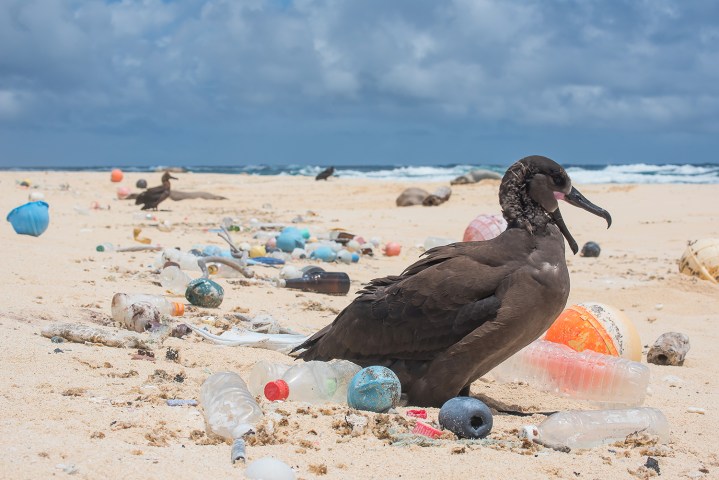
Right now, about 11 million metric tons of plastic makes its way into Earth’s oceans every year. If nothing changes, that amount will rise to 29 million metric tons each year, by 2040. That’s roughly equivalent to every three feet of coastline being heaped with 110 pounds trash.
The projection comes from a new study from Pew Charitable Trusts and Systemiq. A growing population and the production of more single-use plastic will drive the increase. In addition to the plastic found in oceans, people also dump 30 million tons and burn another 50 million tons each year. That, too, is expected to rise.
As part of the study, researchers at the University of Leeds created models of what happens when waste is effectively collected and recycled versus when it isn’t.
“The technology to deal with our waste problems already exists.”
“There are more people with more money buying more goods, but this increase is happening at a faster rate than the capability of local governments to collect the waste,” Dr. Costas Velis and Ed Cook wrote to Digital Trends in an email. They both worked on the models at the University of Leeds. “This is the most critical factor. In the Global South, more than 2 billion people don’t have their waste collected, so they burn, scatter, and bury it,” they explained. “They have to make tough choices in the absence of anything else.”
If a Herculean, worldwide effort were made, the authors of the study say we could reduce the amount of discarded plastic by 80% by 2040. Some of the proposed solutions include reducing plastic production and consumption and switching to paper and compostable material, as well as dramatically increasing waste collection in middle- and low-income countries: By 90% in urban areas and 50% in rural areas.
“The important message is that the technology to deal with our waste problems already exists,” Velis and Cook said. “It is completely within our grasp to solve these challenges, but we need the resources, allocated to the right places in order to do so. Waste collection is the first one, then we need to address the significant societal rejection that is experienced by the 11 million waste pickers who are unintegrated with society around the world.”


